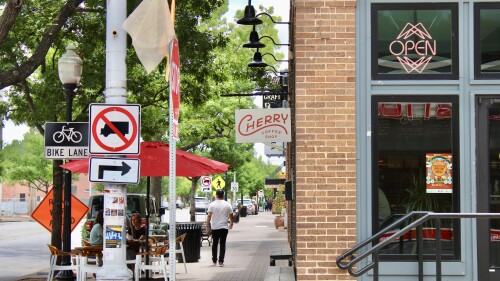Imagine a life where you can get from Fort Worth to Dallas in just 10 minutes on a high-speed train. That far-fetched dream could soon become a reality — well, in about 15-20 years. Here’s how the high-speed transportation project is moving forward + how it will impact the area.
What’s happened so far?
A study conducted by the North Central Texas Council of Governments (NCTCOG) began in 2020 with the goal of selecting a passenger train, identifying potential routes, and receiving government approval. Back in October, the NCTCOG hosted a public meeting to gather public feedback + provide the latest details.
What’s next?
The passenger train was narrowed down to a High-Speed Rail and Hyperloop — with the next phase focusing on route alignment, station locations, and potential social and environmental impacts.
The High-Speed Rail technology will be evaluated over the next two years + the team will study the potential environmental effects on everything from air quality to noise pollution, wetlands, wildlife, and water crossings.
How fast are we talking?
Very fast. The high-speed train would have a maximum speed of 250 mph. The NCTCOG says the goal is to make the trip “in under 20 minutes” — to put that into perspective, a typical rush-hour car ride between Fort Worth and Dallas takes about an hour.
Where will the train go?
Fort Worth: The primary proposed location is Trinity Metro’s existing Central Station along I-35W downtown, but six other downtown-area sites are being explored.
Arlington: Transportation officials narrowed it down to the city’s entertainment district — south of I-30 and between Ballpark Way and North Collins Street.
Dallas: Developers have already announced a plan to build a new terminal south of downtown for the Dallas-to-Houston bullet train. The same station would be used for this project.
What does this mean for future public transportation?
Eventually, the Fort Worth-to-Dallas route would connect to both local transportation and statewide systems, like the Dallas-to-Houston rail, and DFW International Airport.
To keep up with the project’s study + find out when more public meetings will be scheduled, check the NCTCOG’s website.












